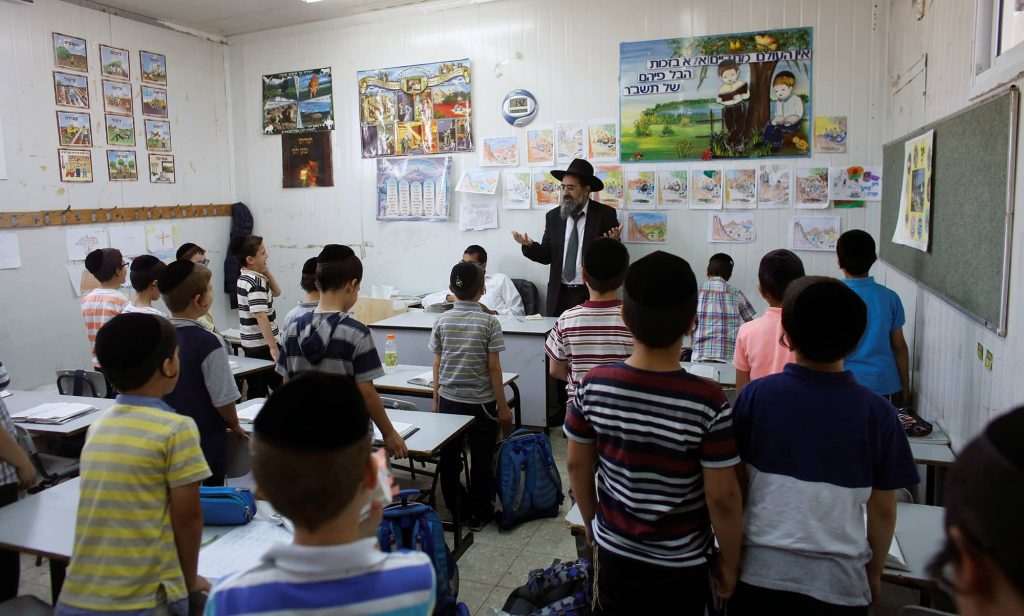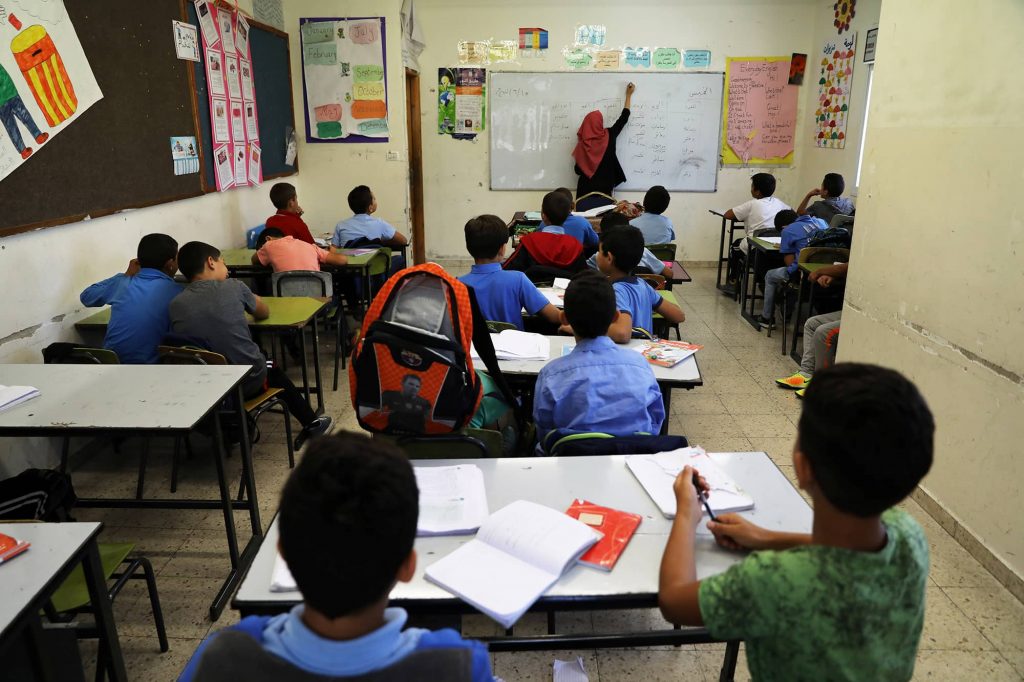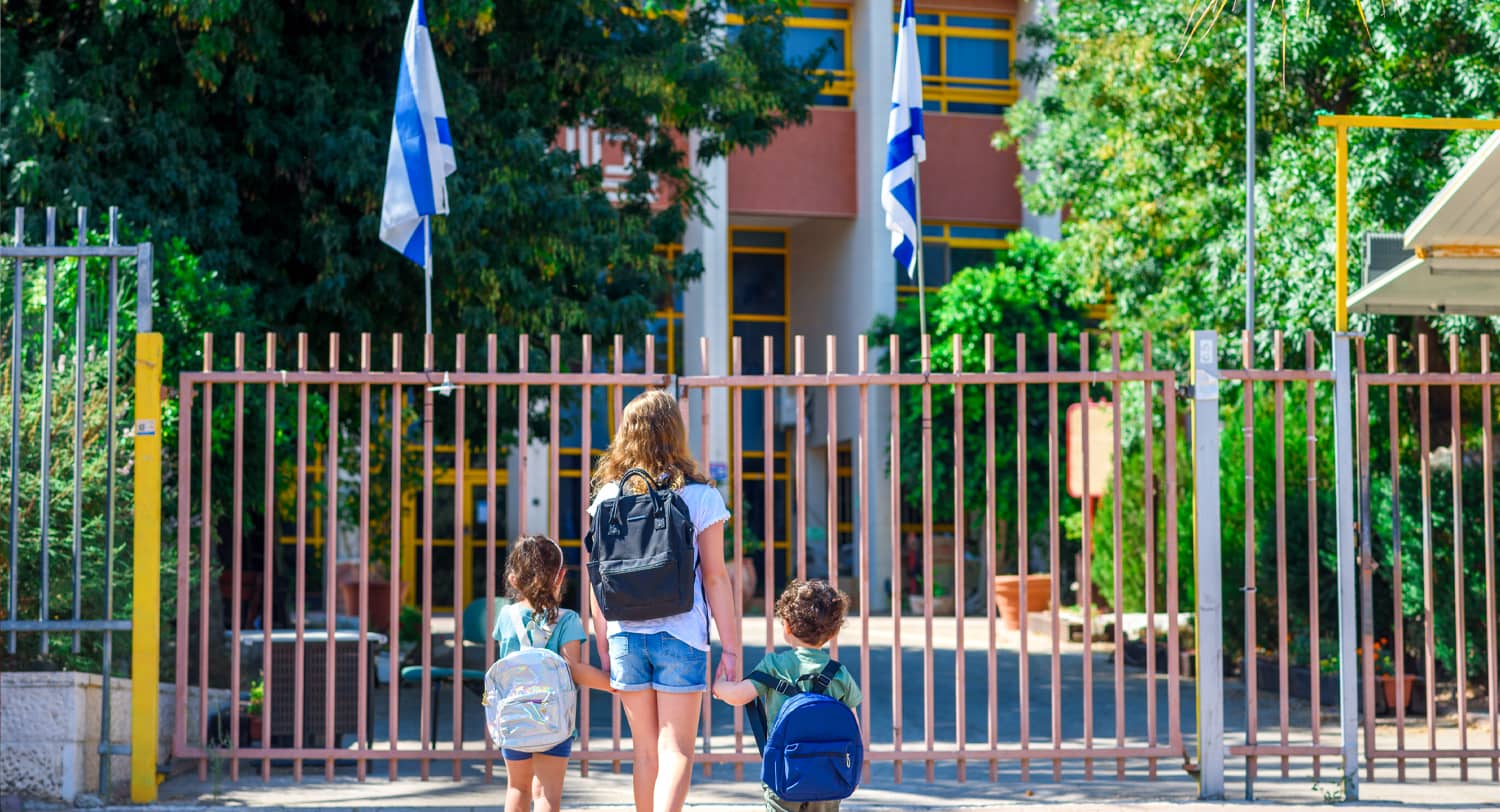A high school teacher has a rebellious student in his civics class and asks her to write an essay about some issue that concerns her. She writes about the harassment that she and some other Jewish girls face at the neighborhood public swimming pool by youth from a nearby Israeli Arab village, concluding that they should be banned from the pool. The teacher is appalled by what he perceives to be her racism. The student is in turn openly disgusted by what she perceives to be the teacher’s use of the classroom to criticize the Israeli military’s human rights practices.
This is the plot in the first episode of the award-winning Israeli television series “Zero Hour,” broadcast in 2022 on Israeli Channel 11 (the public broadcasting authority, which does not shy from airing controversial issues). The series highlights the complexity of education in a democracy polarized by a constant state of conflict, both external and domestic.
In 2015, then-President of Israel Reuven Rivlin gave a famous speech in which he spoke of four Israeli tribes – secular, religious-Zionist, ultra-Orthodox (who identify as Haredim or “God fearing”), and Arab. Rivlin noted that societal transformations “will reshape our identity as Israelis and will have a profound effect on the way we understand ourselves and our national home.” To deal with these consequences, Rivlin proposed the vision of “common Israeliness” as a bridge over such divisions, but without actually defining the content of this shared identity.
The divisions driving these four tribes apart is evident in the ongoing protests against the Netanyahu government’s judicial reform plans. The predominant tribe participating in the protests is the secular Israeli one, primarily from the middle and upper middle classes. Religious Zionists and Haredim tend to support the other side – the judicial reform agenda – whereas the Israeli Arabs have mostly stayed away from the protests.
It was suddenly made manifest that different Israeli tribes have quite different and often contradictory interpretations of something as basic as what is democracy.
Ostensibly, everyone is supposed to be familiar with the basic concepts taught in civics classes in Israeli schools, but in practice, it turns out that each of the four school systems has a different concept of what constitutes good citizenship. How did this happen? Could these differences in the understanding and interpretation of democracy stem from the continued existence of separate education systems that shape the students’ worldview, values, and knowledge?
The Israeli education system is structured to meet the differing needs of the four tribes. The vast majority of Haredi schools do not teach English, science, mathematics or citizenship. The small minority of Haredi students who sit for the nation-wide high school matriculation exams read in their preparation materials, for instance, that “the Supreme Court tramples on what is dear and holy to the people of Israel throughout the generations” and “the fundamental principles of the state are based solely on an eternal divine constitution, which cannot be changed.”

The National-Religious Education Council (which oversees the religious-Zionist schools) also enjoys a high degree of independence in determining school curricula and in employment of educational staff. For instance, some national religious schools do not observe the annual commemoration of Yitzhak Rabin’s assassination, while others teach civics without mentioning the Palestinians and talking about equality for all citizens of Israel. Per student funding in the national-religious schools is 26% higher than in the secular system.
The most underfunded branch of education in Israel today is the Arab one. The gaps are huge, especially in remote cities and villages, leading to poor results of the Arab students in the nation-wide matriculation exams. Teachers in civics classes talk about enormous difficulties – how to teach the official Israeli narrative that largely ignores the Palestinians, despite their own beliefs and knowledge base.
Lastly, the secular education system is the one most intensely supervised by the government. Consecutive right-wing Israeli governments have added more classes about “tradition,” and more opportunities for right-wing speakers to talk to students while banning left-wing speakers. The plot of “Zero Hour” is based on the story of a real teacher – Adam Verete – who was sacked after expressing leftist views.

There are fears in Israel that such incidents may soon become more commonplace. Avi Maoz, an outspoken homophobe and a far-right extremist, was appointed to be a deputy minister in the prime minister’s office and put in charge of a “Jewish identity unit” that will enable him to inspect the external programming taught in secular schools.
Many liberal Israelis are worried about the negative influence of extremists like Maoz or the ideas of a right-wing think tank, Forum Kohelet, whose members wrote recent books on civics for religious-Zionist and secular schools. Another proposal is to classify the secular branch of education as a separate branch, similar to religious-Zionist and Haredi ones, further reducing the overlap in curricula between the systems.
Rivlin in his “Four Tribes” speech noted that none of the four tribes now enjoys a majority of the citizenry (whereas secular Israelis were an outright majority in the past). The proposal to complete the separation of the other education systems from the secular one might affect one of the core values of citizenship – democracy in its traditional liberal sense, together with the goal of full civil equality.
This brief overview of the Israeli education system might provide insight into Israel’s future. Israeli students today are largely unaware of the Green Line (the 1949 ceasefire line that divides Israel from the West Bank) because they don’t study this term, its meaning, and context, and they know close to nothing about the pillars of democracy – such as the need to protect the rights of the minority. Tomorrow they will become voters and decision makers.
The protesters in the streets seeking to stop judicial reform proposals might consider a new focus – a call for a profound change in the Israeli education system – or else the tribalization of Israel will grow apace.

